

 I’m a promiscuous reader, always reading multiple books at a time, switching back and forth. I’m not a poet, but every year, I find myself reading more and more poetry collections. My biggest poetry crushes this year? Ross Gay’s Catalog of Unabashed Gratitude, and (though they weren’t published this year) Stacey Waite’s Butch Geography, and Anne Carson’s Autobiography of Red, which (I guess) qualifies as poetry, but I would call it fiction. My poet friends and I keep having the same argument about whether Maggie Nelson’s work is poetry or nonfiction. They keep trying to claim her, of course, but we all know the truth. After reading Maggie Nelson’s Bluets, an examination of love and suffering and her personal obsession with the color blue, I immediately went out and got The Argonauts, which is a hybrid of sorts, although I’d call it lyric essay. It’s a love story, but it’s also an exploration of motherhood and gender and family and queerness and sexuality, and so many other things. Bonus: the sections discussing women’s anal eroticism, in which Nelson writes, “I am not interested in a hermeneutics, or an erotics, or a metaphorics, of my anus. I am interested in ass-fucking.” Yes!
I’m a promiscuous reader, always reading multiple books at a time, switching back and forth. I’m not a poet, but every year, I find myself reading more and more poetry collections. My biggest poetry crushes this year? Ross Gay’s Catalog of Unabashed Gratitude, and (though they weren’t published this year) Stacey Waite’s Butch Geography, and Anne Carson’s Autobiography of Red, which (I guess) qualifies as poetry, but I would call it fiction. My poet friends and I keep having the same argument about whether Maggie Nelson’s work is poetry or nonfiction. They keep trying to claim her, of course, but we all know the truth. After reading Maggie Nelson’s Bluets, an examination of love and suffering and her personal obsession with the color blue, I immediately went out and got The Argonauts, which is a hybrid of sorts, although I’d call it lyric essay. It’s a love story, but it’s also an exploration of motherhood and gender and family and queerness and sexuality, and so many other things. Bonus: the sections discussing women’s anal eroticism, in which Nelson writes, “I am not interested in a hermeneutics, or an erotics, or a metaphorics, of my anus. I am interested in ass-fucking.” Yes!
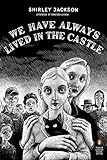

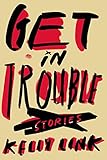 Most of the novels and story collections I enjoyed most this year were fabulist, or had some kind of supernatural element — apparitions or hallucinations or ghosts or the unexplained — and required some suspension of disbelief. Kelly Link’s stories in Get in Trouble, funny and imaginative, were rife with ghosts, super heroes, vampires, and pocket universes. César Aira’s allegorical novel Ghosts, in which a family squatting in an unfinished apartment building in Buenos Aires can see ghosts, is strange and witty and sometimes a little disturbing but surprisingly lighthearted. John Henry Fleming’s stories in Songs for the Deaf were inventive in the best way, sometimes satiric, sometimes dreamy and lyrical, sometimes dysfunctional, and often hilarious. This year I also revisited Shirley Jackson’s We Have Always Lived in the Castle — one of my all-time favorites — a gothic novel, about two sisters who still live (with their elderly uncle) in a house where most of their family was murdered. It’s dark and funny and surprising, part murder mystery, part psychological thriller. Bonus: Merricat, the young narrator, is creepy and sadistic as hell.
Most of the novels and story collections I enjoyed most this year were fabulist, or had some kind of supernatural element — apparitions or hallucinations or ghosts or the unexplained — and required some suspension of disbelief. Kelly Link’s stories in Get in Trouble, funny and imaginative, were rife with ghosts, super heroes, vampires, and pocket universes. César Aira’s allegorical novel Ghosts, in which a family squatting in an unfinished apartment building in Buenos Aires can see ghosts, is strange and witty and sometimes a little disturbing but surprisingly lighthearted. John Henry Fleming’s stories in Songs for the Deaf were inventive in the best way, sometimes satiric, sometimes dreamy and lyrical, sometimes dysfunctional, and often hilarious. This year I also revisited Shirley Jackson’s We Have Always Lived in the Castle — one of my all-time favorites — a gothic novel, about two sisters who still live (with their elderly uncle) in a house where most of their family was murdered. It’s dark and funny and surprising, part murder mystery, part psychological thriller. Bonus: Merricat, the young narrator, is creepy and sadistic as hell.
 Diane Cook’s Man V. Nature was probably my favorite story collection in the last two or three years. I finished it and then texted a bunch of friends to tell them about it and then immediately re-read it because DAMN it was just that good. Cook’s stories are hilarious, even when they’re tragic. Executives are hunted by a monster in an office building, babies are stolen from their mothers, unwanted (or “not needed”) boys are sent off to be incinerated, a giant baby can bench press more than his father. Cook’s stories remind me of Karen Russell, whose stories always knock me out. (By the way, Karen Russell’s novella, Sleep Donation, was one of my favorite reads last year.)
Diane Cook’s Man V. Nature was probably my favorite story collection in the last two or three years. I finished it and then texted a bunch of friends to tell them about it and then immediately re-read it because DAMN it was just that good. Cook’s stories are hilarious, even when they’re tragic. Executives are hunted by a monster in an office building, babies are stolen from their mothers, unwanted (or “not needed”) boys are sent off to be incinerated, a giant baby can bench press more than his father. Cook’s stories remind me of Karen Russell, whose stories always knock me out. (By the way, Karen Russell’s novella, Sleep Donation, was one of my favorite reads last year.)
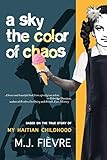
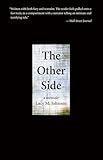 My two favorite memoirs this year, Lacy M. Johnson’s The Other Side and M.J. Fievre’s A Sky the Color of Chaos were both as harrowing as they were beautiful. The Other Side opens with Johnson’s escape from a soundproof room, where she was imprisoned by her former boyfriend — he’d intended to kill her, but she managed to escape. Johnson’s memoir, rather than just a story of the trauma and violence inflicted on her, is about how one deals with the aftermath and effects of trauma, written mostly in short, lyrical sections, often laced with metaphor. M.J. Fievre’s A Sky the Color of Chaos is a memoir about growing up in Haiti after the fall of Jean-Claude “Baby Doc” Duvalier, the country’s violent dictator, when Jean-Bertrand Aristide became president. During this time, the Haitian people were taking violent revenge on the Tonton Macoutes, who were responsible for thousands upon thousands of rapes and murders, and several massacres. As much as it explores Haiti’s difficult history, A Sky the Color of Chaos is a coming of age story, and a story about Fievre’s complicated relationship with her father.
My two favorite memoirs this year, Lacy M. Johnson’s The Other Side and M.J. Fievre’s A Sky the Color of Chaos were both as harrowing as they were beautiful. The Other Side opens with Johnson’s escape from a soundproof room, where she was imprisoned by her former boyfriend — he’d intended to kill her, but she managed to escape. Johnson’s memoir, rather than just a story of the trauma and violence inflicted on her, is about how one deals with the aftermath and effects of trauma, written mostly in short, lyrical sections, often laced with metaphor. M.J. Fievre’s A Sky the Color of Chaos is a memoir about growing up in Haiti after the fall of Jean-Claude “Baby Doc” Duvalier, the country’s violent dictator, when Jean-Bertrand Aristide became president. During this time, the Haitian people were taking violent revenge on the Tonton Macoutes, who were responsible for thousands upon thousands of rapes and murders, and several massacres. As much as it explores Haiti’s difficult history, A Sky the Color of Chaos is a coming of age story, and a story about Fievre’s complicated relationship with her father.
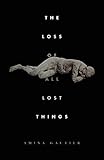
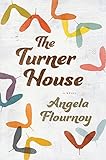 I started reading Angela Flournoy’s The Turner House while planning a move to Detroit. I was looking for what I thought would be “a Detroit novel.” What I got was so much more than that. A moving family saga full of complex characters and subtle metaphors — Cha-Cha seeing haints, the rise and fall of the city, the house itself. Everything about this novel feels balanced — the writing is controlled and elegant; Flournoy chooses two of the 13 siblings to focus on, the eldest and the youngest; the family experiences hard times but also, much like in real life, joy. The Turner House is timeless. And speaking of timeless: I was lucky enough to snag a copy of Amina Gautier’s The Loss of All Lost Things, her third story collection, which comes out next year. The stories in this collection, which is her best, are about all types of loss — parents who lose their son, a boy who comes to terms with the fact that he is lost, the loss of innocence. Gautier is definitely a prose stylist. Her sentences are lyrical, evocative, often haunting.
I started reading Angela Flournoy’s The Turner House while planning a move to Detroit. I was looking for what I thought would be “a Detroit novel.” What I got was so much more than that. A moving family saga full of complex characters and subtle metaphors — Cha-Cha seeing haints, the rise and fall of the city, the house itself. Everything about this novel feels balanced — the writing is controlled and elegant; Flournoy chooses two of the 13 siblings to focus on, the eldest and the youngest; the family experiences hard times but also, much like in real life, joy. The Turner House is timeless. And speaking of timeless: I was lucky enough to snag a copy of Amina Gautier’s The Loss of All Lost Things, her third story collection, which comes out next year. The stories in this collection, which is her best, are about all types of loss — parents who lose their son, a boy who comes to terms with the fact that he is lost, the loss of innocence. Gautier is definitely a prose stylist. Her sentences are lyrical, evocative, often haunting.
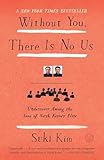

 Like every other person I know, I’m in the middle of Marlon James’s A Brief History of Seven Killings, which is brutal and irreverent and unapologetic and badass, which is why everybody in the world is talking about it. I’m also finishing Phillippe Diederich’s Sofrito, a novel about a restaurant owner who travels to Cuba, his parents’ homeland, in order to steal a secret recipe he thinks may save his restaurant. Diederich, a former photojournalist, really has an eye for details. Cuba is very vivid in this novel — you can see it, smell it, taste it. And I just started Suki Kim’s Without You, There Is No Us. Kim is a South Korean investigative journalist who secretly crossed the border into North Korea, going undercover in Pyongyang and posing as a North Korean teacher. Without You, There Is No Us is the book she wrote while immersed in the North Korean culture. What’s next? I’m excited to finally get to Tanwi Nandini Islam’s Bright Lines. Tanwi and I will be in conversation at the Betsy Hotel South Beach on December 12, talking about books, queer coming of age stories, and so much more!
Like every other person I know, I’m in the middle of Marlon James’s A Brief History of Seven Killings, which is brutal and irreverent and unapologetic and badass, which is why everybody in the world is talking about it. I’m also finishing Phillippe Diederich’s Sofrito, a novel about a restaurant owner who travels to Cuba, his parents’ homeland, in order to steal a secret recipe he thinks may save his restaurant. Diederich, a former photojournalist, really has an eye for details. Cuba is very vivid in this novel — you can see it, smell it, taste it. And I just started Suki Kim’s Without You, There Is No Us. Kim is a South Korean investigative journalist who secretly crossed the border into North Korea, going undercover in Pyongyang and posing as a North Korean teacher. Without You, There Is No Us is the book she wrote while immersed in the North Korean culture. What’s next? I’m excited to finally get to Tanwi Nandini Islam’s Bright Lines. Tanwi and I will be in conversation at the Betsy Hotel South Beach on December 12, talking about books, queer coming of age stories, and so much more!
More from A Year in Reading 2015
Don’t miss: A Year in Reading 2014, 2013, 2012, 2011, 2010, 2009, 2008, 2007, 2006, 2005
The good stuff: The Millions’ Notable articles
The motherlode: The Millions’ Books and Reviews
Like what you see? Learn about 5 insanely easy ways to Support The Millions, and follow The Millions on Twitter, Facebook, Tumblr.










